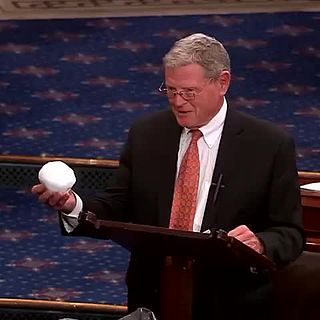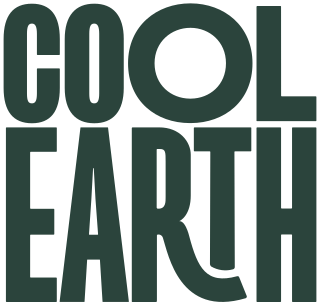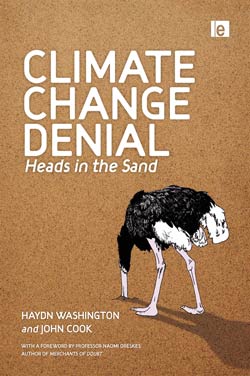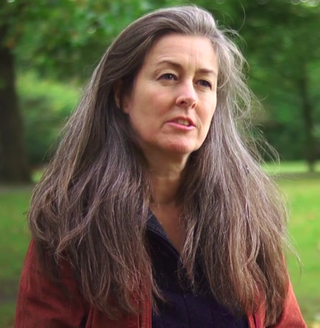Related Research Articles

CPRE, The Countryside Charity, formerly known by names such as the Council for the Preservation of Rural England and the Campaign to Protect Rural England, is a charity in England with over 40,000 members and supporters. Formed in 1926 by Patrick Abercrombie to limit urban sprawl and ribbon development, the CPRE claims to be one of the longest running environmental groups in the UK. CPRE campaigns for a "sustainable future" for the English countryside. They state it is "a vital but undervalued environmental, economic and social asset to the nation." They aim to "highlight threats and promote positive solutions." They campaign using their own research to lobby the public and all levels of government.

The Institute of Economic Affairs (IEA) is a right-wing, free market think tank registered as a UK charity. Associated with the New Right, the IEA describes itself as an "educational research institute" and says that it seeks to "further the dissemination of free-market thinking" by "analysing and expounding the role of markets in solving economic and social problems".

George Joshua Richard Monbiot is a British journalist, author, and environmental and political activist. He writes a regular column for The Guardian and has written several books.

Patrick Albert Moore is a Canadian industry consultant, former activist, an early member and past president of Greenpeace Canada. Since leaving Greenpeace in 1986, Moore has criticized the environmental movement for what he sees as scare tactics and disinformation, saying that the environmental movement "abandoned science and logic in favor of emotion and sensationalism". Greenpeace has criticized Moore, calling him "a paid spokesman for the nuclear industry, the logging industry, and genetic engineering industry" who "exploits long-gone ties with Greenpeace to sell himself as a speaker and pro-corporate spokesperson".

Edward René David Goldsmith, widely known as Teddy Goldsmith, was an Anglo-French environmentalist, writer and philosopher.
The International Policy Network (IPN) was a think tank based in the City of London, founded 1971, and closed in September 2011. It was a non-partisan, non-profit organization, but critics said it was a "corporate-funded campaigning group". IPN ran campaigns on issues such as trade, development, healthcare and the environment. IPN’s campaigns were pro-free market.

Mark Lynas is a British author and journalist whose work is focused on environmentalism and climate change. He has written for the New Statesman, The Ecologist, Granta and Geographical magazines, and The Guardian and The Observer newspapers in the UK, as well as the New York Times and Washington Post in the United States; he also worked on and appeared in the film The Age of Stupid. He was born in Fiji, grew up in Peru, Spain and the United Kingdom and holds a degree in history and politics from the University of Edinburgh. He has published several books including Six Degrees: Our Future on a Hotter Planet (2007) and The God Species: Saving the Planet in the Age of Humans (2011). Lynas is research and climate lead for the Alliance for Science and is co-founder of the pro-science environmental network RePlanet. Since 2009 he has been climate advisor to former president of the Maldives Mohamed Nasheed, and he currently works to assist Nasheed with the Climate Vulnerable Forum, a group of the world's most climate-vulnerable 58 developing countries. He is a strategic advisor for the international ecomodernist NGO WePlanet. He has co-authored a number of peer-reviewed scientific publications, including a 2021 paper which found that the consensus on anthropogenic climate change in the scholarly literature now exceeds 99%.
Undercurrents is an alternative video news network which began with the UK distribution of videotapes shot by volunteers. It has since expanded to include a web presence, media training for volunteers, and a film festival, BeyondTV.

Conservation International (CI) is an American nonprofit environmental organization headquartered in Crystal City, Virginia, in Arlington County, Virginia.
Martin Richard Durkin is an English television producer and director who has been commissioned by Britain's Channel 4. He is best known for directing The Great Global Warming Swindle (2007), which promotes climate change denial, and Brexit: The Movie (2016), which advocates for the United Kingdom's withdrawal from the European Union.

Climate change denial is a form of science denial characterized by rejecting, refusing to acknowledge, disputing, or fighting the scientific consensus on climate change. Those promoting denial commonly use rhetorical tactics to give the appearance of a scientific controversy where there is none. Climate change denial includes unreasonable doubts about the extent to which climate change is caused by humans, its effects on nature and human society, and the potential of adaptation to global warming by human actions. To a lesser extent, climate change denial can also be implicit when people accept the science but fail to reconcile it with their belief or action. Several studies have analyzed these positions as forms of denialism, pseudoscience, or propaganda.

Kevin Mark Conrad, born in the United States to parents living in Papua New Guinea in 1968, is a Papua New Guinean businessman and environmentalist. He grew up in the Arapesh tribe near Wewak, East Sepik Province and graduated from Ukarumpa High School in the Eastern Highlands Province.

Cool Earth is an international NGO that funds Indigenous communities to protect endangered rainforests in order to combat the climate crisis and protect ecosystems.

Deforestation in Papua New Guinea has been extensive and in recent decades from 2001 to 2020, Papua New Guinea (PNG) lost 1.57Mha of tree cover, equivalent to a 3.7% decrease in tree cover since 2000, and 1.15Gt of CO₂e emissions.

Marc Morano is a former Republican political aide who founded and runs the website ClimateDepot.com. ClimateDepot is a project of the Committee for a Constructive Tomorrow (CFACT), a US non-profit organisation that promotes climate change denial.
The Equality Trust is a UK registered charity that campaigns against economic and social inequality. Founded as a campaigning organisation in 2009 by Bill Kerry, Richard G. Wilkinson and Kate Pickett after the publication of Wilkinson and Pickett's book The Spirit Level: Why More Equal Societies Almost Always Do Better, it became a registered charity in 2015.

Climate Change Denial: Heads in the Sand is a 2011 non-fiction book about climate-change denial, coauthored by Haydn Washington and John Cook, with a foreword by Naomi Oreskes. Washington had a background in environmental science prior to authoring the work; Cook, educated in physics, founded (2007) the website Skeptical Science, which compiles peer-reviewed evidence of global warming. The book was first published in hardcover and paperback formats in 2011 by Earthscan, a division of Routledge.

Climate Change Denial Disorder (CCDD) is a satirical short film which parodies climate change denial and perspectives on climate change through discussion of a fictional disease. The film stars actors Ed Begley Jr., Timothy Brennan, and Susan Yeagley. It was directed by Carly Usdin, written by Nicol Paone, and produced by Brianne Trosie. The film was released on April 14, 2015, by comedy video website and film/TV production company Funny or Die and on April 16 to YouTube.
Mike Shanahan is a British biologist and writer whose work focuses on rainforests, climate change, biodiversity and related issues. He studied at the University of Leeds, where he received a BSc in biology, MSc in biodiversity and conservation and PhD in rainforest ecology. Between 1997 and 1999, he undertook research in the rainforest of Lambir Hills National Park, in Sarawak, Borneo, and on an island volcano: Long Island, Papua New Guinea. His research focused on figs and the animals that eat them.

Pauline Hélène "Polly" Higgins was a Scottish barrister, author, and environmental lobbyist, described by Jonathan Watts in her obituary in The Guardian as, "one of the most inspiring figures in the green movement". She left her career as a lawyer to focus on environmental advocacy, and unsuccessfully lobbied the United Nations Law Commission to recognise ecocide as an international crime. Higgins wrote three books, including Eradicating Ecocide, and started the Earth Protectors group to raise funds to support the cause.
References
- 1 2 George Marshall, "Some personal and highly biased ideas for digging our way out of this hole", last chapter of Don't Even Think About It (2014), summarising the book (page visited on 26 September 2020).
- ↑ "Resurgence & Ecologist (Vol 20 No 3 - May / June 1990)". theecologist.org.[ permanent dead link ]
- ↑ Asia Pacific Action Group, Marshall G. A Summary of the Commission of Enquiry into Aspects of the Papua New Guinea Timber Industry, 1991.
- ↑ The Political Economy of Logging, the Barnett Inquiry into Corruption in the Papua New Guinea Timber Industry Archived 22 December 2015 at the Wayback Machine , The Ecologist , volume 20, number 5, September–October 1990.
- 1 2 "Climate Outreach – Our staff and trustees". climateoutreach.org.uk.
- ↑ "About George Marshall". climateconviction.org.
- ↑ "Climate Outreach – Our staff and trustees". climateoutreach.org.ukaccessdate=20 August 2015.
- ↑ Sevier, Lauren. "The retrofit revolution - domestic makeovers that can help save the world".
- ↑ BBC, The eco-house that George built.
- ↑ "Commedia Millennium Awards". Archived from the original on 4 March 2016. Retrieved 21 August 2015.
- ↑ The Ecologist , Visionaries: George Marshal.
- ↑ Marshall, George (18 May 2015). "Here's a radical idea: Climate activists need to engage conservatives".
- ↑ Marshall, George (15 April 2015). "Engage centre-right voters to put climate change on the political platform". TheGuardian.com .
- ↑ Marshall, George (4 April 2015). "What the climate movement must learn from religion". TheGuardian.com .
- ↑ Wales Online, Welsh eco-median takes stand-up tour around UK to tackle green issues.
- ↑ Climate Conviction, Reviews, http://www.climateconviction.org/reviews.html
- ↑ Monbiot, George (7 January 2015). "Why leaving fossil fuels in the ground is good for everyone". TheGuardian.com .